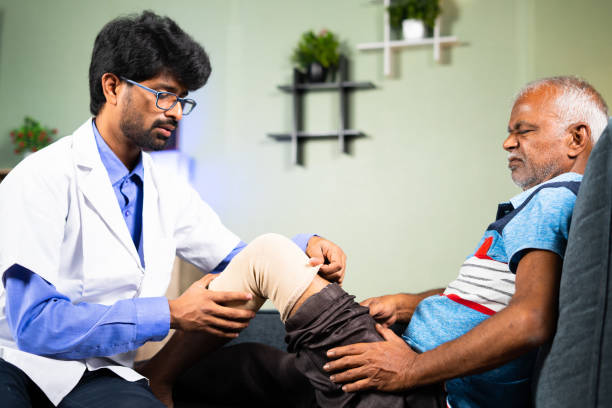Understanding Defective Products and Your Rights
Every year, thousands of consumers are harmed by defective products—whether it’s a faulty appliance, unsafe toy, or malfunctioning medical device. Understanding defective products and your legal rights is the first step toward justice and compensation.
When a product doesn’t perform as intended and causes harm, you may be eligible for financial compensation. U.S. product liability laws are designed to protect consumers like you. They hold manufacturers, distributors, and sellers accountable when safety standards are ignored.
For more legal insights, visit
Legal Case Review, your trusted source for personal injury and liability law guidance.
Types of Defective Products and Their Risks
Defective products generally fall into three categories:
- Design Defects – These occur when the product’s very design is unsafe. For example, a top-heavy bookshelf that easily tips over poses a hazard even if manufactured perfectly.
- Manufacturing Defects – These happen during the production process. A missing bolt in a baby stroller or a cracked component in a car could lead to injuries.
- Marketing Defects (Failure to Warn) – When a company fails to provide adequate instructions or warnings, it can lead to user injury. Think of medications that don’t list severe side effects.
Each defect type presents different risks. Design defects often affect entire product lines, while manufacturing issues might be limited to a batch. Marketing defects can lead to widespread confusion and misuse, increasing injury risks
.
Legal Grounds for Product Liability Claims
To file a successful product liability claim, you must establish legal grounds. These include:
- Negligence – When the manufacturer failed to use reasonable care in the design, production, or labeling.
- Strict Liability – You don’t need to prove negligence; just that the product was defective and caused injury.
- Breach of Warranty – A broken promise, such as a product that fails to perform as advertised.
Product liability claims are complex. Partnering with a qualified attorney ensures you meet legal requirements and deadlines.
Check out the U.S. Consumer Product Safety Commission (
CPSC) to stay informed about product recalls and safety guidelines.

Ready to connect with top legal professionals? Get immediate support— Call us at 877-550-8911.
Connect with Our Legal Team
Steps to Take After Being Injured by a Defective Product
If you’re injured, take these steps immediately:
- Seek Medical Attention – Get treated, even if the injury seems minor. Medical records will be vital later.
- Preserve the Evidence – Keep the product, packaging, instructions, and receipt. Take photographs of your injuries and where the incident occurred.
- Report the Incident – Notify the manufacturer or retailer. Filing a report also helps alert other consumers.
- Document Everything – Track your medical treatments, missed work, and expenses. These records strengthen your case.
- Consult an Attorney – Don’t wait. Legal professionals can help determine if you have a case and how best to pursue compensation.
Gathering Evidence for Your Case
Your evidence tells the story of what happened. To strengthen your claim:
- Take clear photos of the product, injury, and surrounding environment.
- Save receipts, product manuals, and warranty cards.
- Write down what happened, including date, time, and how the product was used.
- Collect witness statements, if applicable.
- Keep all communications with the manufacturer or seller.
Your attorney may also call on engineers or product experts to support your claim. Strong evidence boosts your chances of a favorable settlement or court verdict.
The Role of Insurance Companies in Product Liability
In many cases, manufacturers and retailers are insured. When you file a claim, their insurance provider often steps in. But keep this in mind:
- Insurance companies aim to minimize payouts.
- They might offer a low settlement quickly, hoping you’ll accept without question.
- They may dispute the extent of your injuries or suggest you misused the product.
Document all interactions and never accept a settlement without legal advice. A skilled product liability attorney will help you negotiate fair compensation.
How to Find the Right Legal Representation
Choosing the right attorney can make or break your case. Look for:
- Specialization in Product Liability – They understand case law, tactics, and court expectations.
- Proven Track Record – Ask about their success with similar claims.
- Clear Fee Structure – Most work on a contingency fee (they only get paid if you win).
- Comfort and Communication – You’ll be working together closely, so choose someone who listens and explains well.
Ask for referrals, read reviews, and consult your state bar association if needed. A reputable lawyer will offer a free consultation to evaluate your case.

Compensation You May Be Entitled To
If a defective product injured you, you may be eligible for several types of compensation:
- Medical Bills – Past, present, and future treatment.
- Lost Wages – Income lost due to time off work.
- Pain and Suffering – Physical pain and emotional trauma.
- Rehabilitation Costs – Including therapy and assistive devices.
- Loss of Earning Capacity – If your injury affects future employment.
- Punitive Damages – In cases of extreme negligence or misconduct.
Every case is unique, so a legal consultation can help estimate potential compensation and guide you on what to claim.
Frequently Asked Questions (FAQs)
Q1: How long do I have to file a product liability claim?
A: It depends on your state, but most statutes of limitations range from 1 to 4 years after the injury. Contact a lawyer as soon as possible.
Q2: Can I sue if I wasn’t using the product exactly as instructed?
A: Possibly. If the product should have anticipated alternative use and still caused harm, you may have a case.
Q3: Do I need to keep the defective product?
A: Yes! The product is key evidence. Do not throw it away or try to fix it.
Q4: What if I threw away the packaging?
A: While packaging helps, you may still have a claim. Photographs, receipts, and witness statements can support your case.
Q5: Will my case go to court?
A: Most product liability claims settle out of court. However, if a fair settlement can’t be reached, your attorney may advise taking it to trial.
Final Thoughts
If you or a loved one has been injured by a defective product,
know your rights and act quickly. Understanding the type of defect, gathering proper documentation, and choosing experienced legal representation are essential steps toward recovery and justice.
For personalized legal guidance, explore Legal Case Review—your go-to resource for trusted legal insights and product liability support.
Don’t wait to secure the legal representation you deserve. Visit Legal Case Review today for free quotes and tailored guidance, or call 877-550-8911 for immediate assistance.





